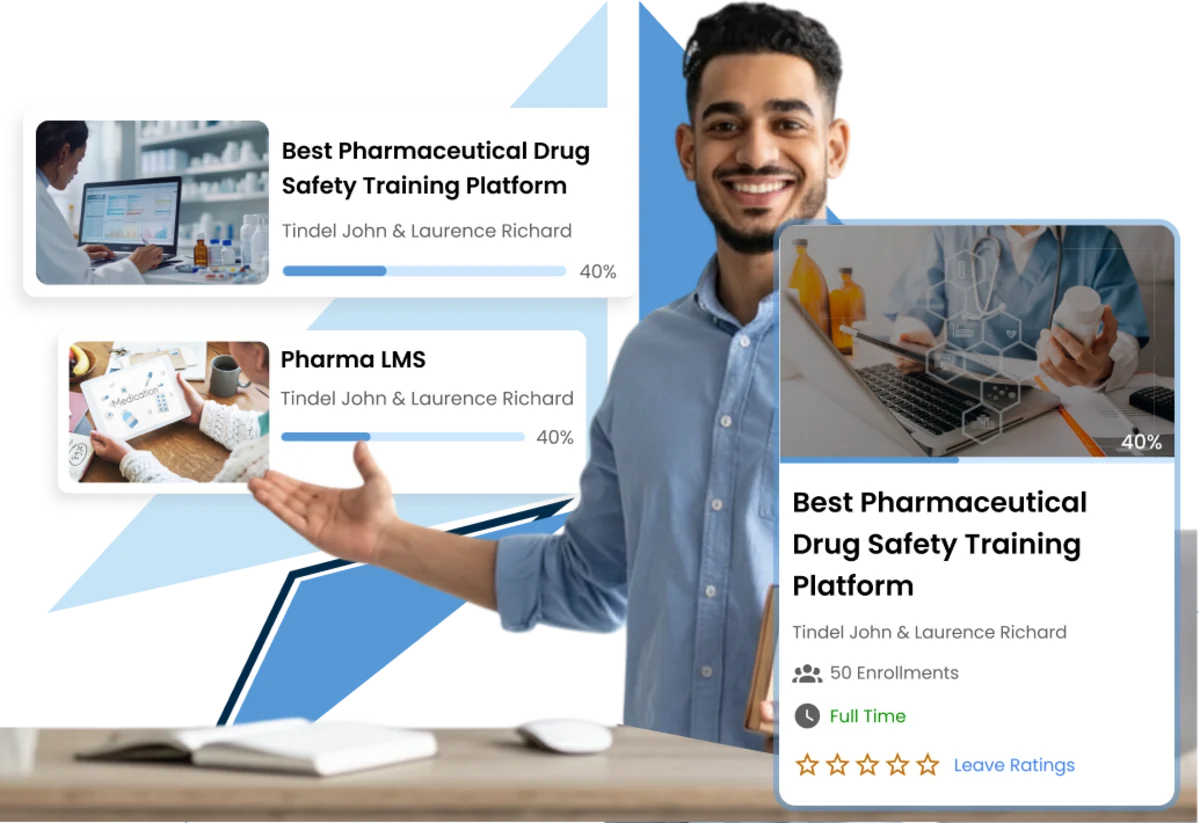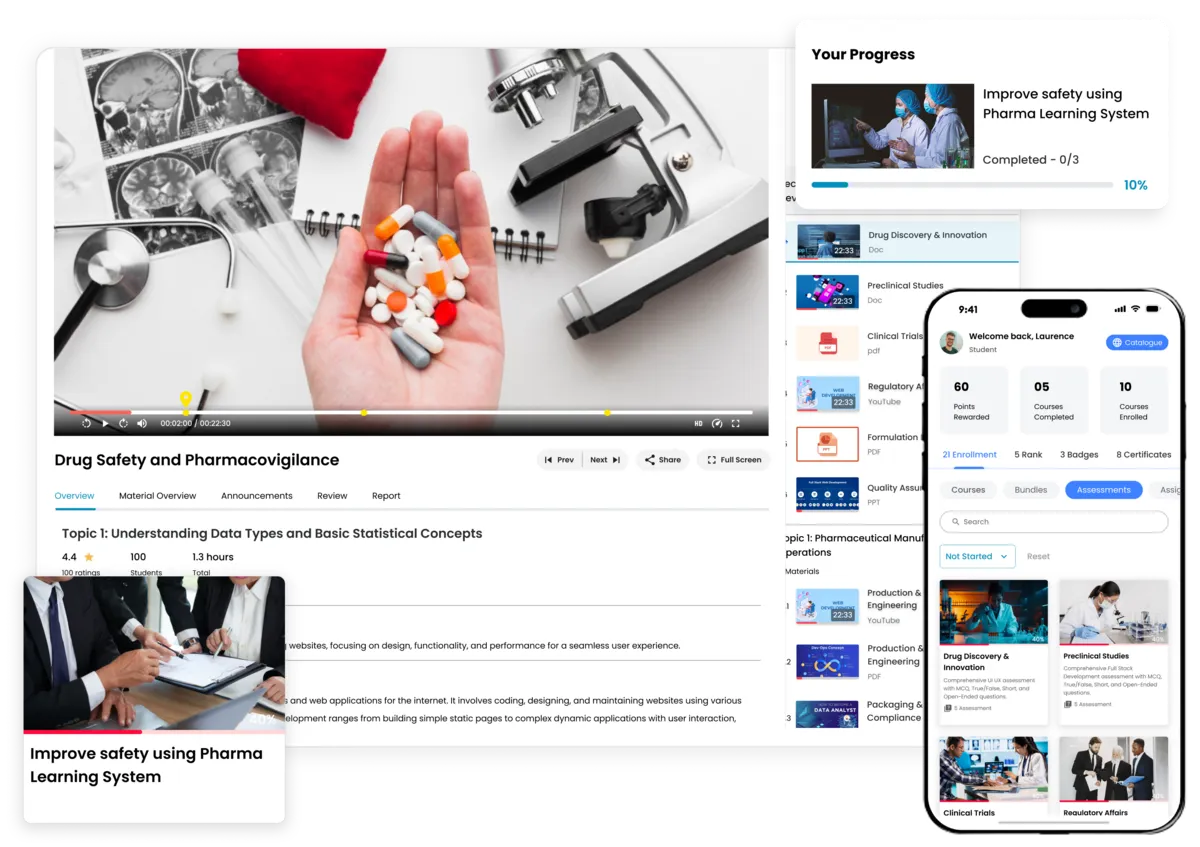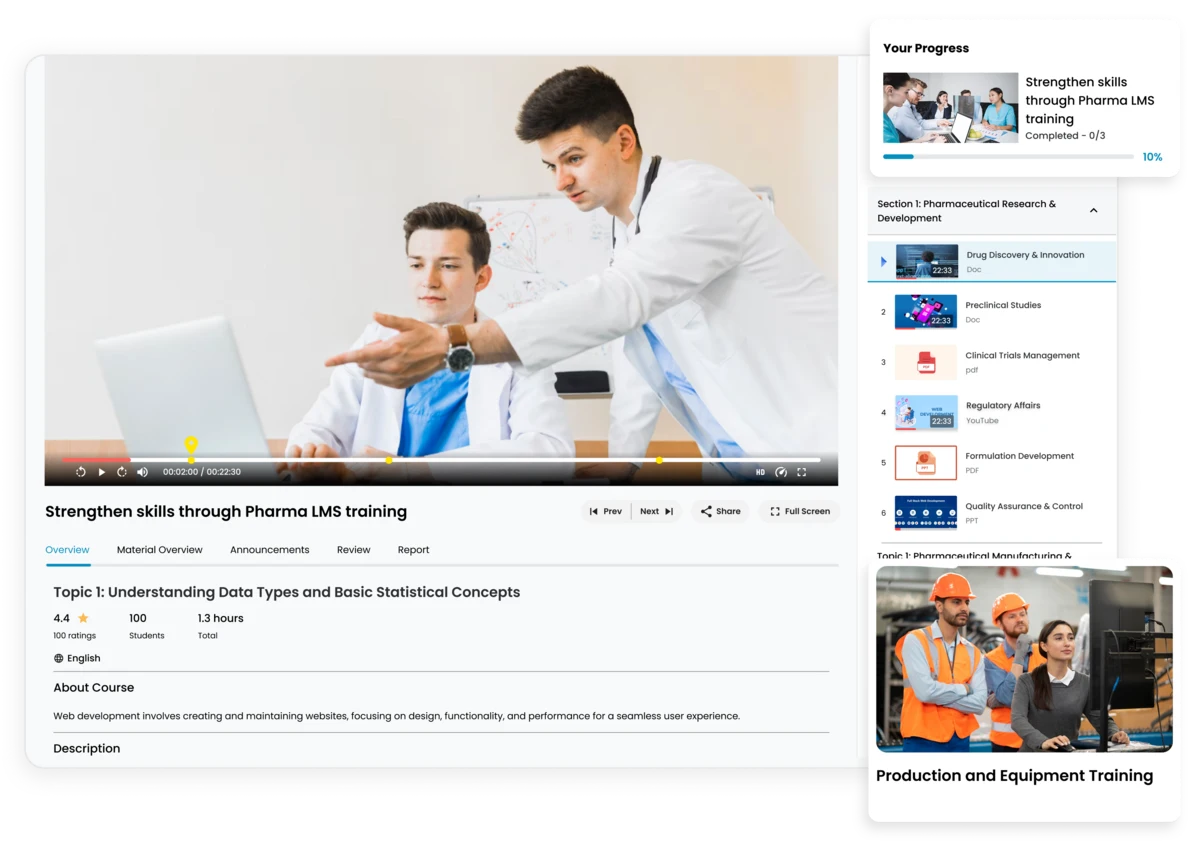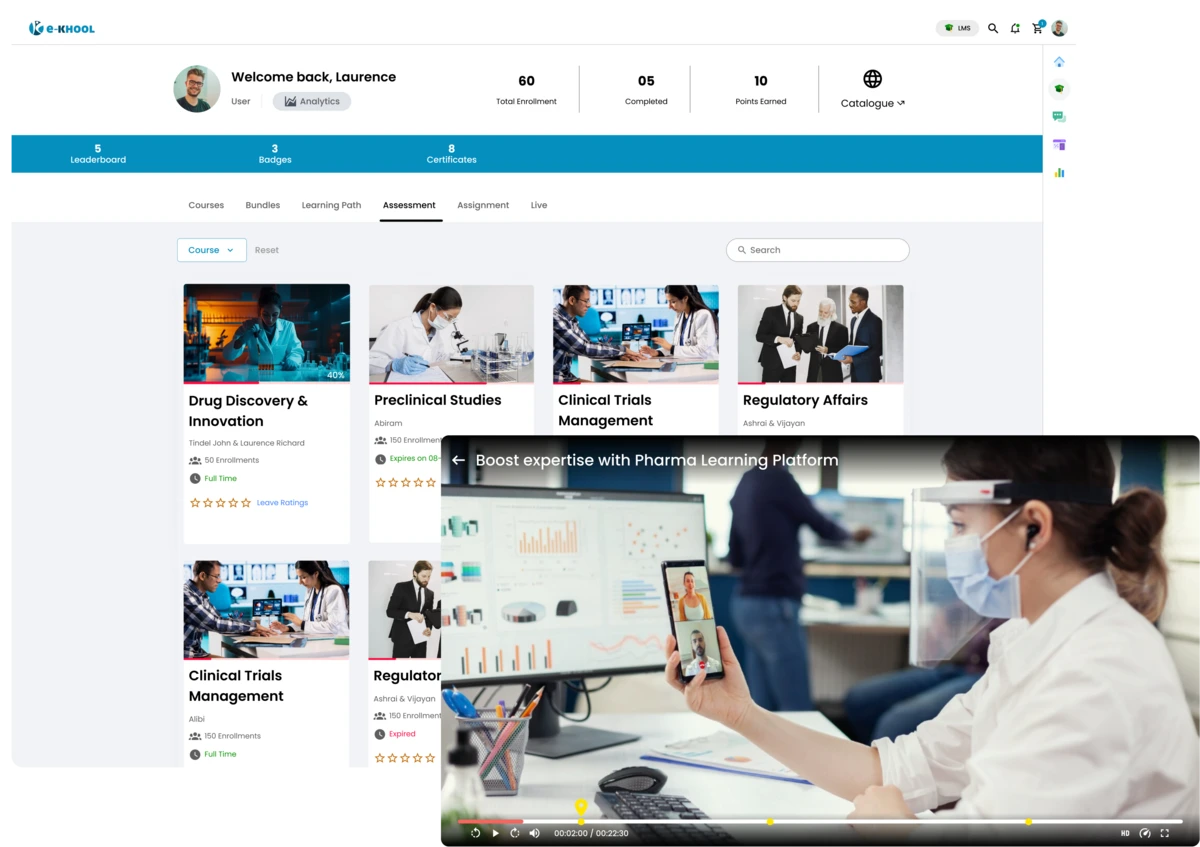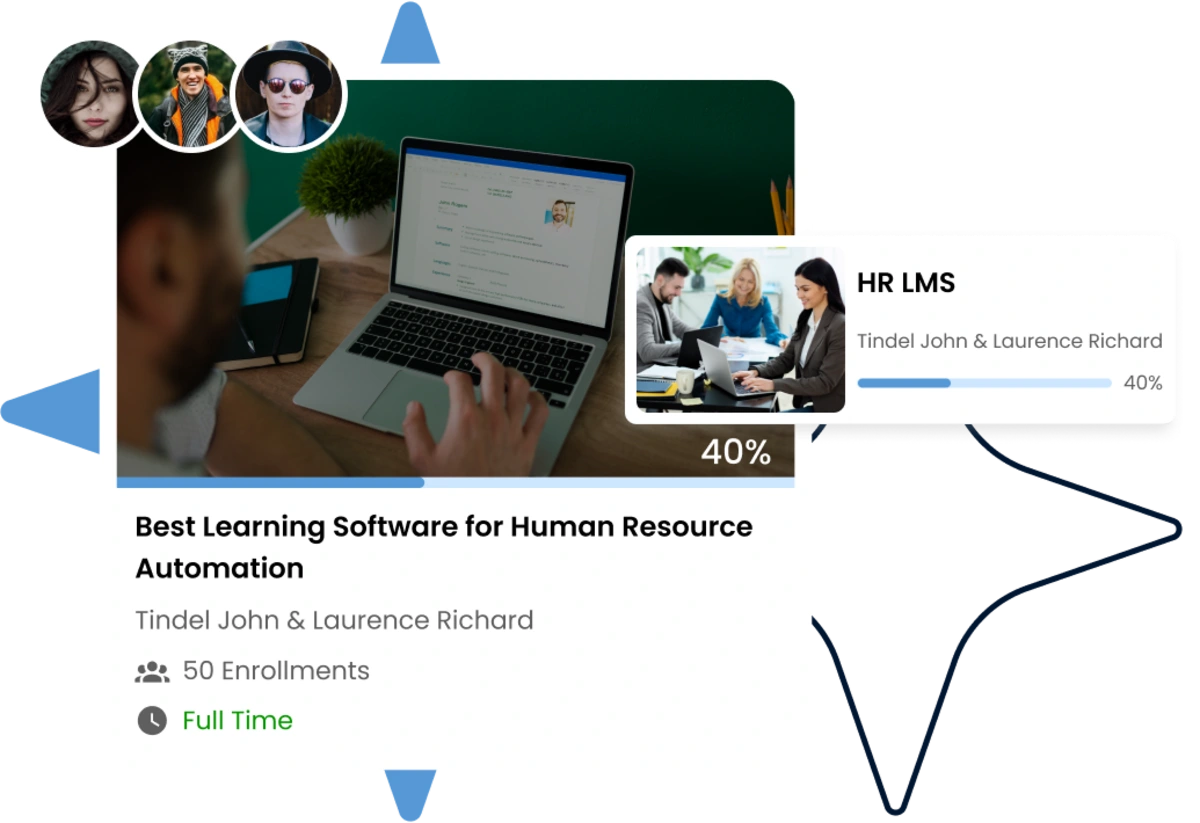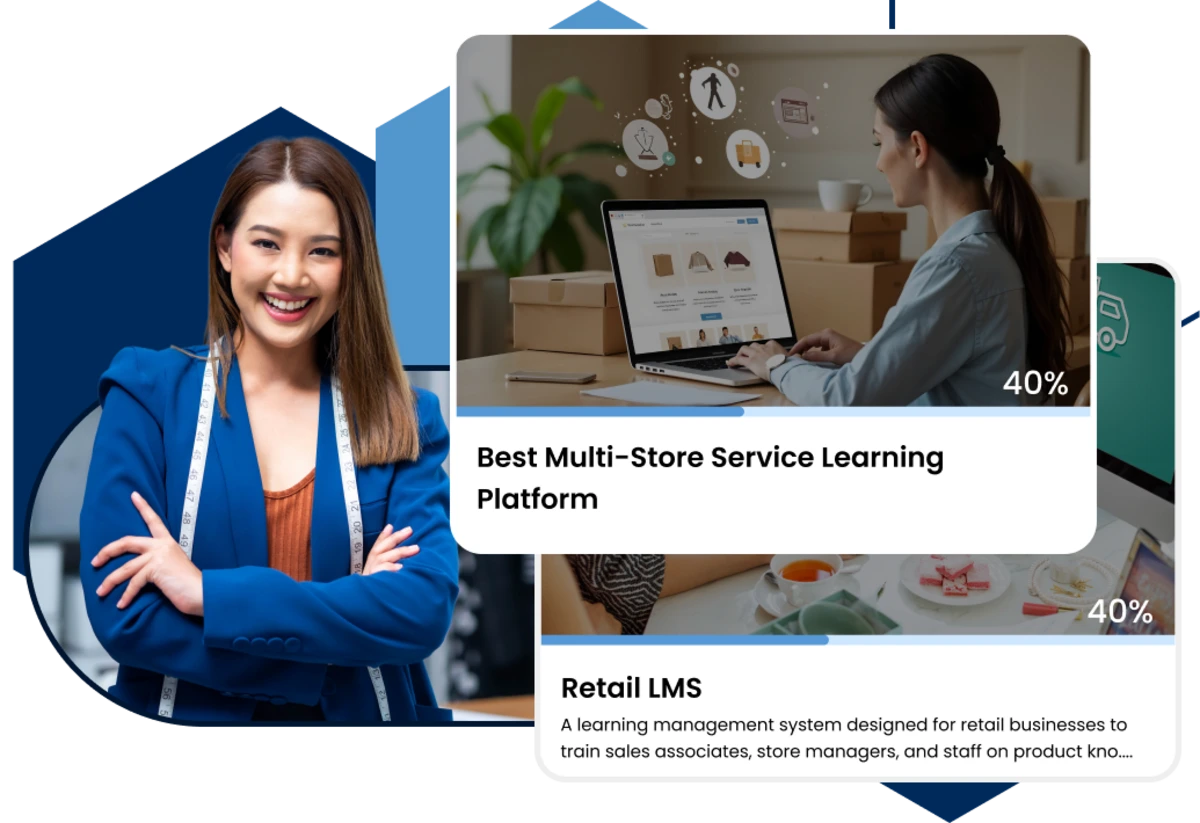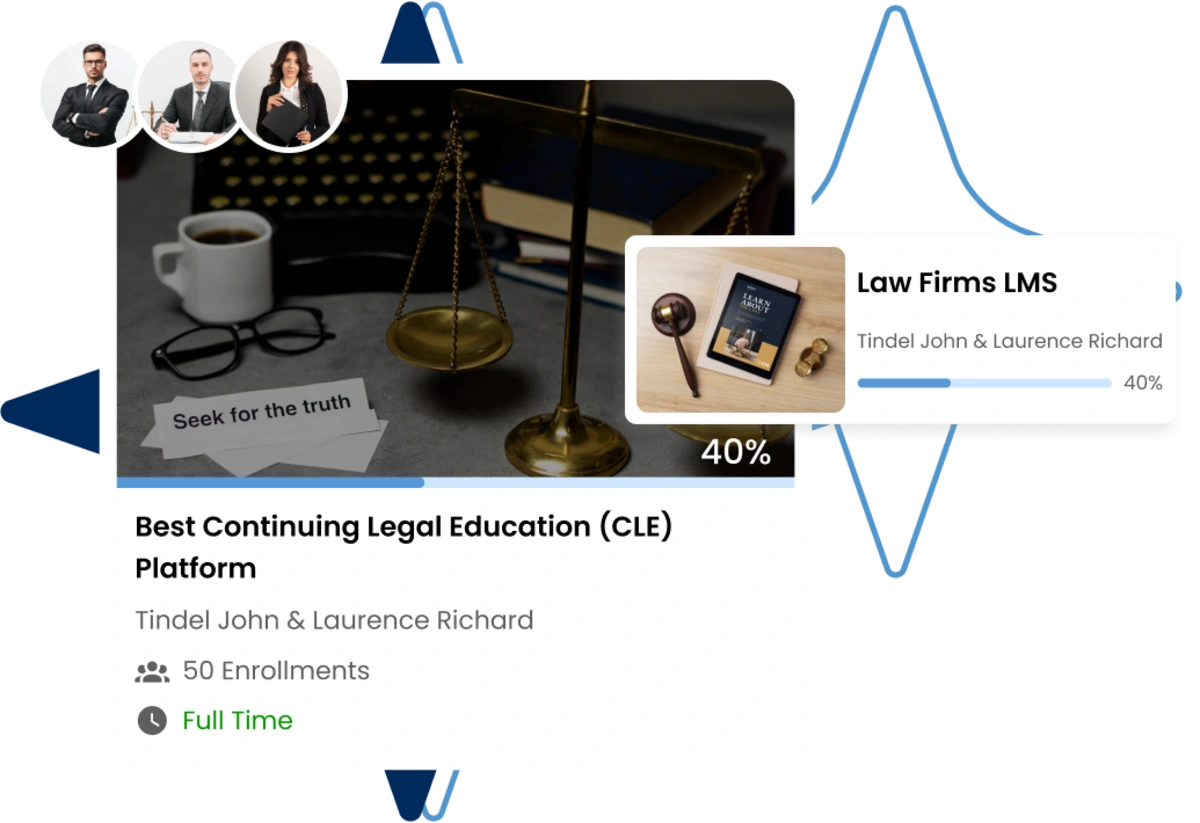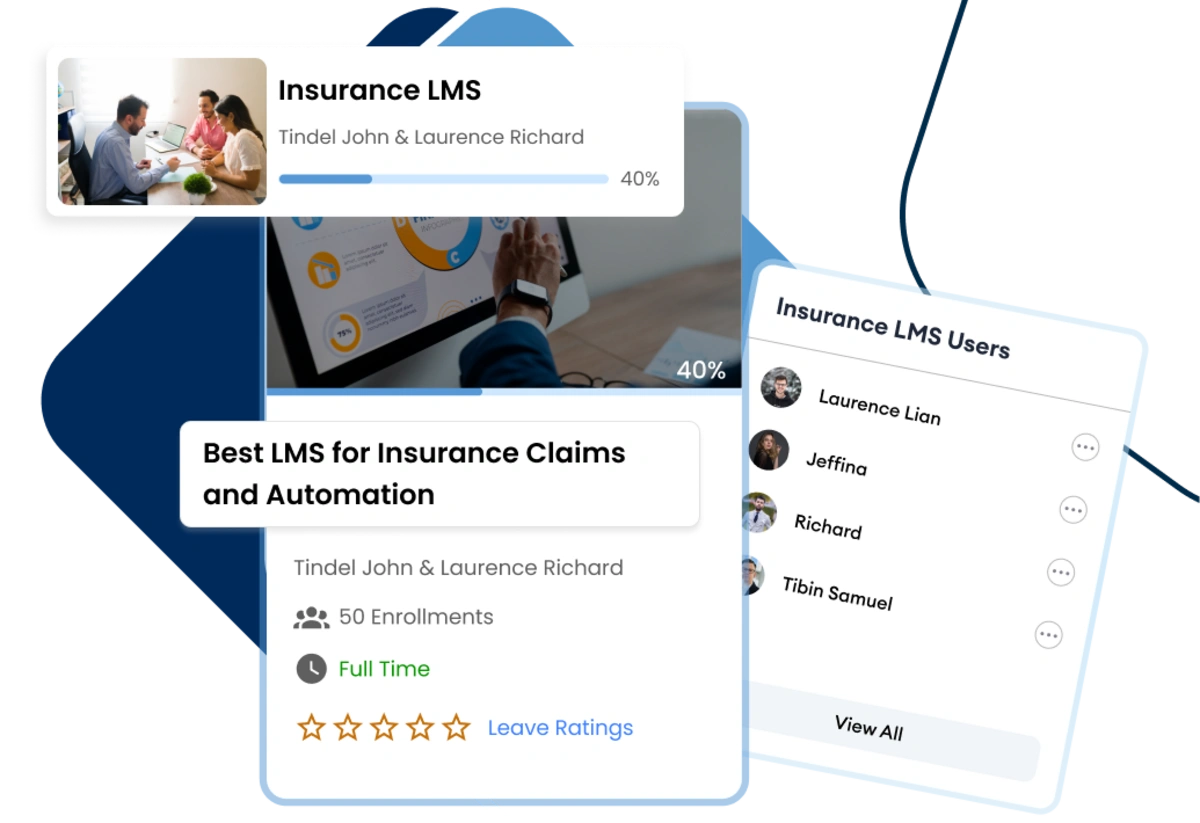Empowering Every Department Through Pharma LMS
Pharmaceutical organizations use e-KHOOL LMS to train and align diverse teams across production, research, sales, and quality control and elevate product quality in every stage.
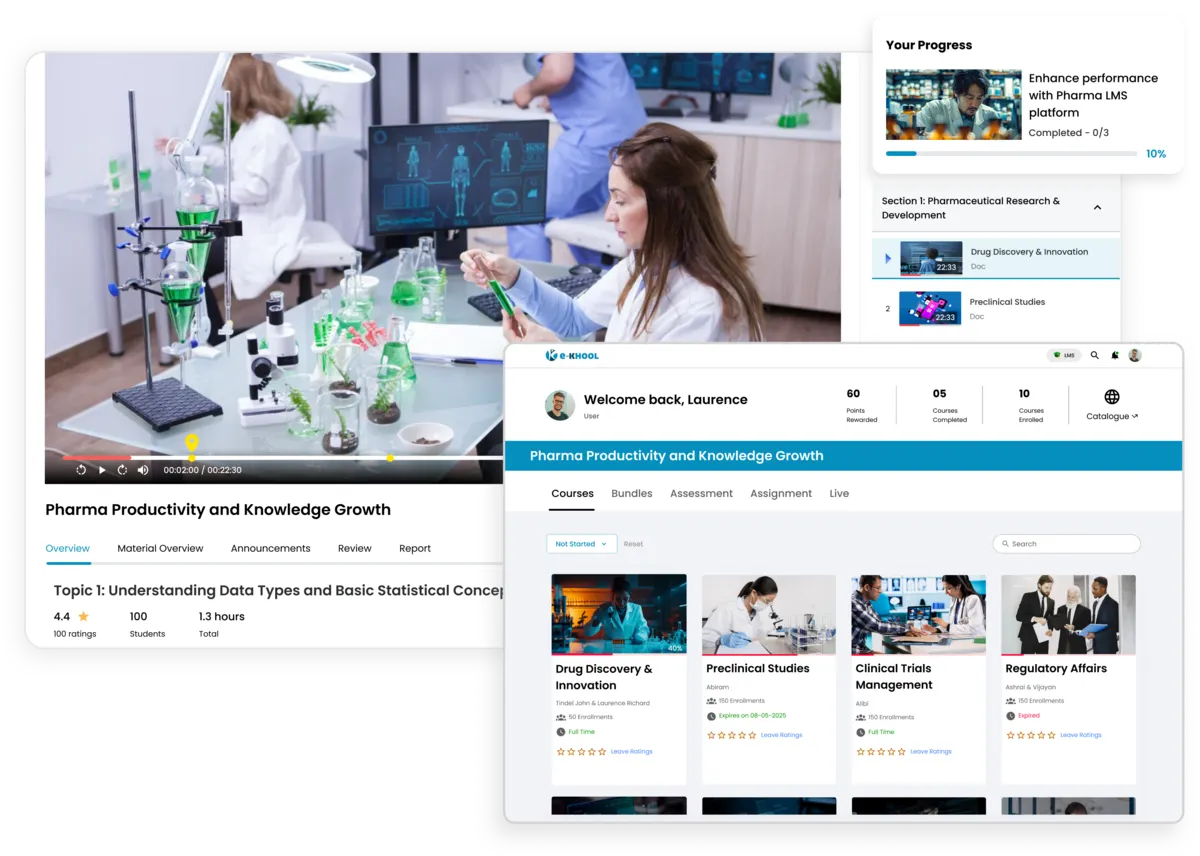
Research and Development Teams
R&D teams use e-KHOOL LMS to enhance knowledge of formulation development, new drug applications fostering a culture of scientific excellence and compliance.
Production and Manufacturing Units
For production teams, e-KHOOL LMS delivers structured training on equipment handling, and quality standards reducing deviations, and ensuring manufacturing efficiency.
Sales and Marketing Teams
Sales professionals gain a competitive edge using e-KHOOL LMS for Pharmaceutical Industry through product knowledge, ethical marketing practices, and compliance training.
Quality Assurance and Compliance Teams
e-KHOOL LMS for Pharma Sector simplifies document version control and tracking individual compliance status, ensuring quality standards remain uncompromised. .
Streamlined Training for Pharma Excellence
e-KHOOL LMS enables pharmaceutical organizations to deliver critical training efficiently—covering compliance, production safety, clinical research, and SOP updates..
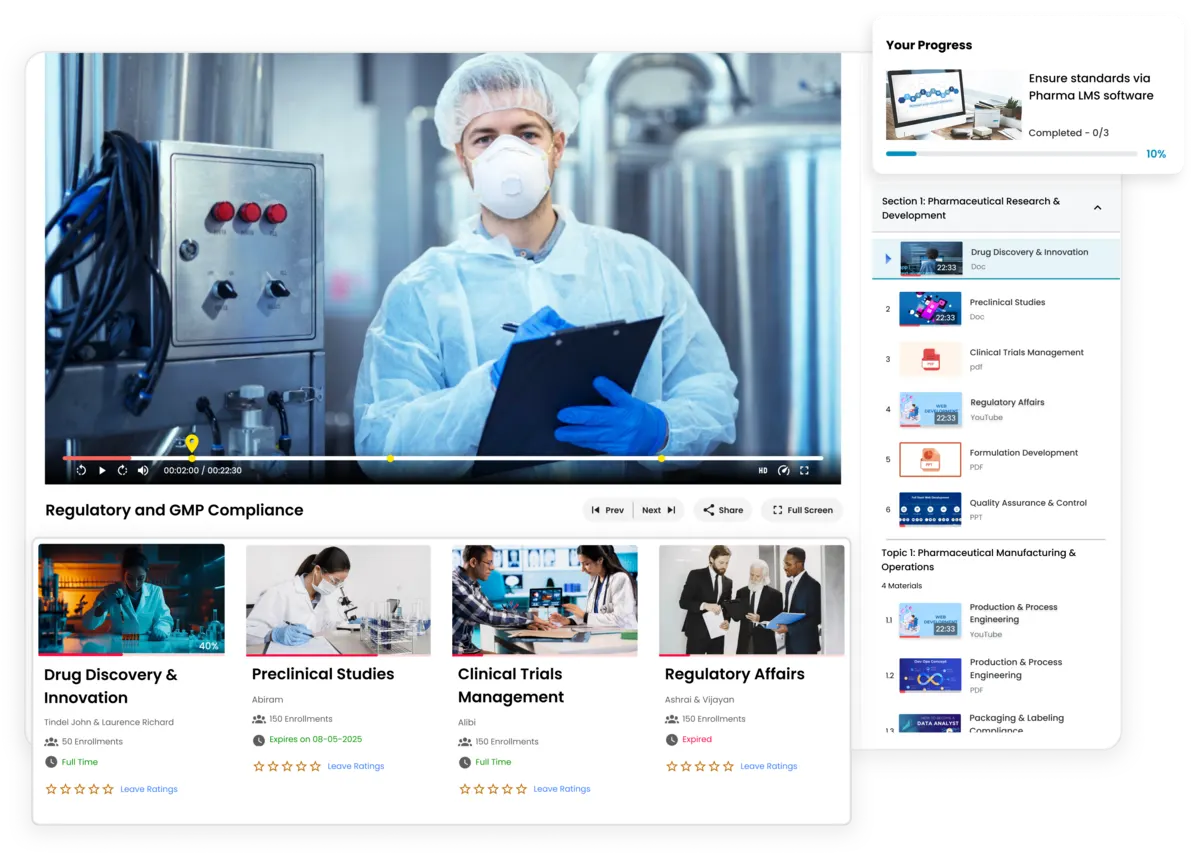
LMS Platform Features Helping Pharmaceutical Industry
e-KHOOL LMS for Pharmaceutical Companies offers end-to-end digital learning management tailored for pharma’s compliance-driven environment.
Automated Compliance and Certification Tracking
The LMS automates renewal alerts, tracks completion of compliance courses, and maintains digital records for inspections boosts regulatory confidence across the organizations.
Centralized Knowledge and SOP Repository
Store and manage training manuals, and regulatory guidelines securely within e-KHOOL Learning Platform for Pharma Industry where employees can quickly locate needed materials.
Interactive and Adaptive Learning Paths
Interactive modules, video tutorials improve learning engagement, making complex subjects like GMP or safety procedures easier to understand and apply in real-world operations.
Real-Time Analytics and Reporting Tools
e-KHOOL LMS real-time dashboards empower leadership to make informed decisions, ensuring all pharma operations stay audit-ready and aligned with regulatory expectations.
Measurable Benefits of LMS
Pharmaceutical companies using e-KHOOL LMS experience measurable improvement in compliance efficiency, employee productivity, and audit success rates.
58%
Annual compliance training efficiency growth
35%
Cost reduction in audit preparation
72%
Improved employee performance outcomes
